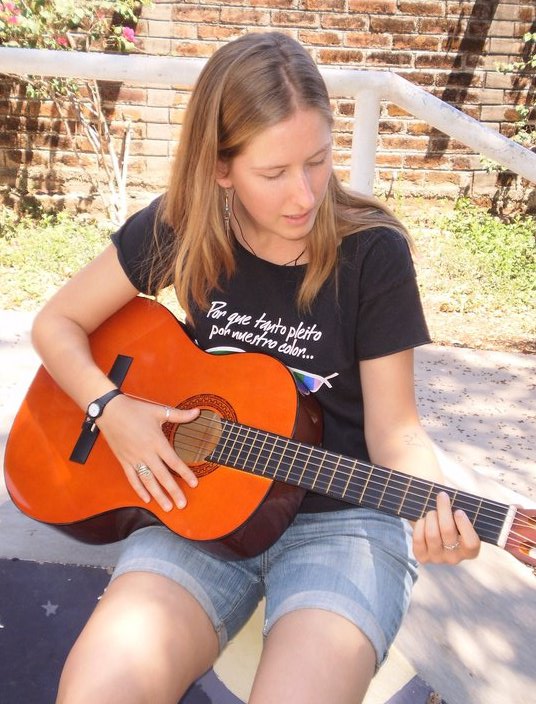In Spanish, to wait, to hope, and to expect are all bundled up in the same verb: esperar. In the church year, waiting, hoping, and expectation are bundled up in one season: Advent. I found a lovely Advent calendar online. I won't describe it - you have to go check it out.
This Thursday (December 1) is World AIDS Day. It's been thirty years since AIDS first reared its head on this planet and it hasn't taken a break or even slowed down since. The primary project of my job here in Detroit is building an HIV prevention program through the congregation I work in. Tomorrow night we will hold the Detroit World AIDS Day Commemoration at a local seminary.
One thing I've learned and run into a lot is the idea that my generation is desensitized to the real catastrophe that is HIV. We have never known a world without it; the first effective antiretroviral cocktails came out when we were in grade school. It's not a death sentence anymore. And in a lot of ways, that has lowered the stigma - in some arenas. And yet the stigma is still SO strong in other arenas that people are afraid even to talk about getting tested, much less enter into further conversation.
I got tested a couple weeks ago. It seemed like a thing I ought to do, given that a part of my job is stressing the importance of testing. It took fifteen minutes and a prick that I didn't even feel - and it was free! (The sheet with my result - negative - hung on the fridge for several days. :) And the great leaps that have been made in the realm of testing and prevention are a huge deal. You used to have to wait weeks, worrying, as your blood was shipped every which way. Now, not so. And yet all the testing and prevention resources in the world aren't worth a lot if your church or your school or anyone has you too afraid to accept them.
Bridging that gap is so important and the church absolutely MUST take a role in that process. Not only in getting resources to people, but in calling out the pharmaceutical companies that ensure that there is an ever-newer recipe for Viagra, but puts an honest-to-God HIV vaccine as a lower priority. We need to start (and keep) being prophetic on this. (And that means we have to talk about...sex, friends. In church. But Lutherans are awkward from square one, so this shouldn't be that big a deal.)
In some ways we know what it is we are hoping and waiting for and in some ways we don't yet. That image keeps forming in us, together.
Entretanto, esperamos.
Tuesday, November 29, 2011
Monday, November 21, 2011
Never again - All the time - November
November seems to be the time for recommitting ourselves to building a creative end to violence.
Last year around this time, we were celebrating Dia de los Difuntos and remembering the massacres at Copapayo and the Central American University. This year, as has happened every year since the 1989 killing of the six Jesuits and two of their colleagues, there was a major demonstration at the School of the Americas at Ft. Benning, Georgia, where the UCA assassins were trained.
Closer to home - far closer to home - more commemorations. November 20 is the Transgender Day of Remembrance. It is an annual day to remember and celebrate the lives of those trans sisters and brothers who have been killed. At a worship service on Friday night, we lit 270 candles to remember the trans people who have been killed throughout the world in the last year. (And those are only the deaths that are known - many murders of trans people go unreported due to fear or police involvement.) One of the angels we remembered was Shelly Moore, who was killed in Detroit last month. This was a brutal act that my mind and soul are still working to comprehend. I avoided posting any articles to facebook for several days because I couldn't find the right words to accompany them. Then I realized, there are no words. But while there is a time and place for powerful silence, this is not one of them.
Shelly's mother was one of the speakers at the commemoration on Friday. We had read through a third of the names, lit a third of the candles, at the point at which she got up to speak. And the first thing she said at the lectern was, "God is good - all the time," to which the congregation replied, "and all the time, God is good." Forget everything else she said - every other powerful word Ms. Nelson spoke about her daughter and her pain. That she could find that profession in the midst of her grief amazes me.
How can a woman who is sitting in the depths of hell be so bold as to proclaim the goodness of God? Last November at the community mass at the Suchitoto cemetery, on the Day of the Beloved Departed, Padre Carlos talked about Mary. Too many of the people gathered remembering their loved ones were there to honor people who had been killed at the hands of the government. Padre Carlos reminded them that Mary and Joseph understood that grief profoundly. In this case, too, I find myself again seeing Mary is a mother who lost her child because she pushed boundaries and frightened people by speaking truth. A mother who can say "God is good - all the time" in the midst of anguish. I find myself without adequate words again, this time from awe.
But I do have "nunca mas" - "never again." How do I bring together "never again" and "all the time, God is good"?
Subscribe to:
Comments (Atom)
